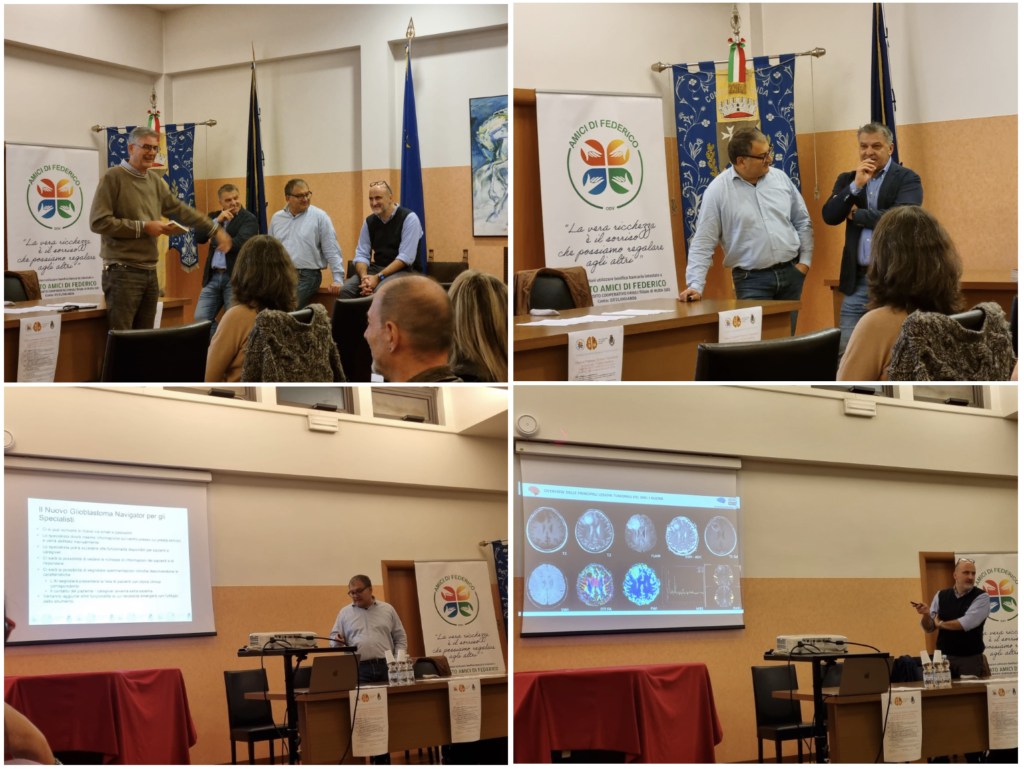Beyond the Diagnosis: Research, Volunteering and Treatments for Brain Tumours
The Council Chamber of the Municipality of Ruda was transformed Tuesday evening into a place of hope and sharing, with Mayor Franco Lenarduzzi in the front row to testify to the commitment of the municipal administration in supporting initiatives of such high social value. The occasion was the 17th International Brain Tumor Awareness Week, but the atmosphere that was created went far beyond a simple information event.
Among those present, it was impossible not to notice Mattia Marchiò. His presence, with the Optune device clearly visible, gave a concrete face to the daily fight against brain tumors. Mattia did not limit himself to being present: he shared his experience with a strength and determination that moved the room.
The voluntary associations gave a voice to those who fight this battle every day. Valentino Listuzzi, president of the Amici di Federico Association, illustrated the valuable work done in supporting families, while the Volunteer Organization Glioblastoma.IT, part of the international IBTA network, presented a series of innovative initiatives. Particular interest was aroused by the “Glioblastoma Navigator” project, a cutting-edge platform that combines artificial intelligence and medical expertise to help patients and caregivers in managing the treatment path. Alongside this, the “Speranza e Coraggio” project will provide remote psychological support to patients and family members, with the support of the Region. La Casa di Joy also brought its important testimony to the field.
Particularly touching was the intervention of the parents of Samuele, known as “Il Figlio di Tutti”, S. Calligaris and M. Mattiazzi, who transformed their pain into active commitment for others.

The debate was heated when neurosurgeon F. Tuniz of ASUFC presented the latest developments in brain tumor research and treatment. The discussion was enriched by the interventions of psycho-oncologists Fabio Campanella and Daniela Tasinato, who emphasized that psychological support is not an option, but an essential component of the treatment path.
The evening demonstrated that the fight against brain tumors is not just a medical issue, but a challenge that requires the commitment of everyone: local governments, doctors, researchers, volunteers, patients and families. The voices that alternated told different stories but united by a common thread: the determination not to give up and the will to support those who are facing this difficult battle.
As the evening drew to a close, it was clear to everyone present that events like this are not only moments of awareness, but real catalysts of hope and solidarity. A strong message emerged: no one should face this challenge alone, and the territory is responding united, from the institutions to volunteers.